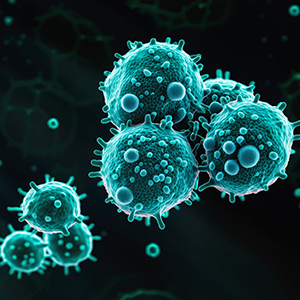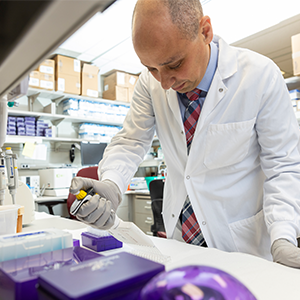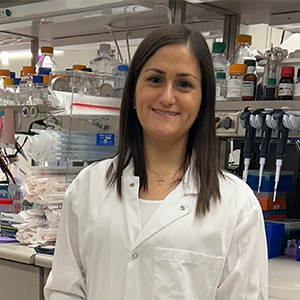-
Science Saturday: Mayo Clinic researchers integrate genomics into kidney disease diagnosis, care

Genomic testing results evaluated by a team of Mayo Clinic researchers, coupled with the latest research techniques, provided a definitive diagnosis for 30.7% of families with unexplained chronic kidney disease or stones, as reported in a 2021 study published in Kidney Medicine, a Journal of the National Kidney Foundation.
The study obtained the highest diagnostic yield in people with tubulointerstitial diseases at 53.3%, followed by congenital anomalies of the kidney and urological tract, 33.3%; glomerular 31%; cysts 26.7%; stones 25%; and others, 15.4%. A further 12.3% of patients had variants of interest.

"Despite employing conventional biochemical, imaging, and biopsy data, a significant proportion of chronic kidney disease patients do not obtain a firm diagnosis," says Filippo Pinto e Vairo, M.D., Ph.D., a Mayo Clinic clinical geneticist and lead author of the study. "A precise diagnosis may lead to lifestyle changes, therapy and clinical management changes, influence family planning, inform the selection of living donors, and improve knowledge about the disease."
A central component of the retrospective study included the creation of the Mayo Clinic Nephrology Genomics Clinic led by Marie Hogan, M.D., Ph.D., a Mayo Clinic nephrologist and co-author of the study. The clinic improved the researchers' ability to integrate genomic and clinical data to identify the causes of unexplained chronic kidney disease. A Nephrology Genomics Board, which consisted of nephrologists, geneticists, pathologists, translational omics scientists, and trainees, interpreted the patient's clinical and genetic data. Incorporating specialized genetic counselors from the Center for Individualized Medicine into the nephrology practice improved access to genetic testing and substantially affected the patient population.
Smooth integration of research activities into a busy clinical practice was a differentiating feature of the program, explains Dr. Pinto e Vairo. A close relationship between the testing facility that offered genomic expertise, nephrologists and access to expert genetic counseling was needed to provide specific information, ease adverse psychosocial consequences from a diagnosis, and establish realistic pretest expectations through careful education.
Peter Harris, Ph.D., a Mayo Clinic nephrologist and co-author of the study, expounds on the significance of the results and the benefits of integrating genomics into kidney disease and care.
"Our results demonstrate the feasibility of integrating genomic sequencing into routine care at a large U.S. academic clinical nephrology referral practice," says Dr. Harris. "Greater awareness is needed regarding the value of genetic testing, and the important legal, insurance and emotional issues surrounding a genetic kidney diagnosis."
The authors note in addition to improving diagnosis and prognosis, genomic testing can improve patient outcomes and quality of life, sometimes preempting more intensive treatments and resulting in cost savings.
For more information on how Mayo researchers established a Nephrology Genomics Clinic, read this editorial published in Kidney International.
The Mayo Clinic Nephrology Genomics Clinic is part of the Program for Rare and Undiagnosed Disease in Mayo Clinic’s Center for Individualized Medicine. This program aims to better serve patients with undiagnosed or rare diseases. The program launched 15 new clinics this past year and supported 333 new patients facing different rare diseases.
Related Articles







